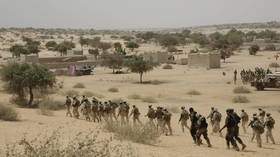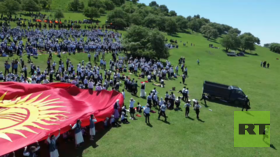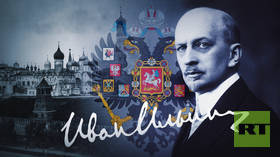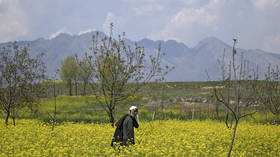Bashkortostan: land at the interface of Europe and Asia
RT’s Close-Up team takes you to Russia's Republic of Bashkortostan – the region on the border between Europe and Asia famous for most ancient rock paintings in Eastern Europe and wild-hive beekeeping traditions.
Annexed by Russia in the 16th century, Bashkortostan gained the status of a republic within the country in 1992. It occupies a major part of the Southern Urals and the Republic’s capital, Ufa, is called the pearl of the Urals.
Bashkortostan’s economy is based on agriculture and there’s vast mineral wealth in the republic when it comes to precious and semi-precious stones, as well as oil.
The ethnic Bashkirs are a partly Turkic people, and judging by the cave drawings inside the famous karstic grotto complex Shulgan-Tash, some of the earliest inhabitants arrived there some 10,000-14,000 years ago.
Shulgan-Tash National Park guide Gulnaz Buranshina says the drawings are the oldest in the whole of Eastern Europe and are similar to those which were found in sanctuaries in Spain and France.
No one is sure if the drawings served as decorations, altar inscriptions or primeval account books.
Myth claims the first two Bashkirs were two blood-drinking giants, lured to the region by plentiful game and endless summers.
“There are great mysteries about these people and their complex culture. And we will likely never know anything about them for certain,” says caver Yury Lyakhnitsky.
Next came the time of shamans, who believed all things have a soul. They left behind evidence of their technology – which was perhaps a giant sundial.
“The ancients needed to know about sunrises and sunsets not just for ritual, but to know when to plant their crops. Their survival depended on it,” says archeologist Vitaly Kotov.
Contemporaries described the first Bashkirs as warlike and independent-minded. But nevertheless they were conquered – first by the Golden Horde [the Mongols], and then Russia.
Salavat Yulaev – who led a rebellion against Catherine the Great, was captured and had the word “traitor” branded onto his face – is reputed to be father of the nation.
Meanwhile, away from the battlefield Bashkirs are famous for their honey and horse-rearing.
Horsemeat is a popular ingredient in the region’s cuisine – and this isn’t for show. Ancient farming methods, dishes and instruments have survived intact, particularly away from the big cities.
“In one way we live in a big provincial city, no different from any other in Russia,” says Ernest Yenikeev, a local celebrity. “But the people see their identity through their roots, their history.”
There are several programs aimed especially at reviving the Bashkirs’ language and culture in the republic, says Deputy Prime Minister of Bashkortostan Ildus Ilishev.
Ethnic Bashkirs are not the biggest group in the republic, behind Russians, and level with Tatars.
Their checkered history, long relationship with Russia and a recent nationalist revival have produced a people that defy easy categorization – and that's a 21st-Century identity in itself.
Along with supporting their national culture and traditions, Bashkirs keep up with this century’s pace. Both youths and adults take the new opportunities which are provided to them, including educational ones.
America-Bashkir Intercollege director Vyacheslav Shvayko says the focus of their school is getting increasingly on conversational skills and they bring in Western speakers to help teach students.












